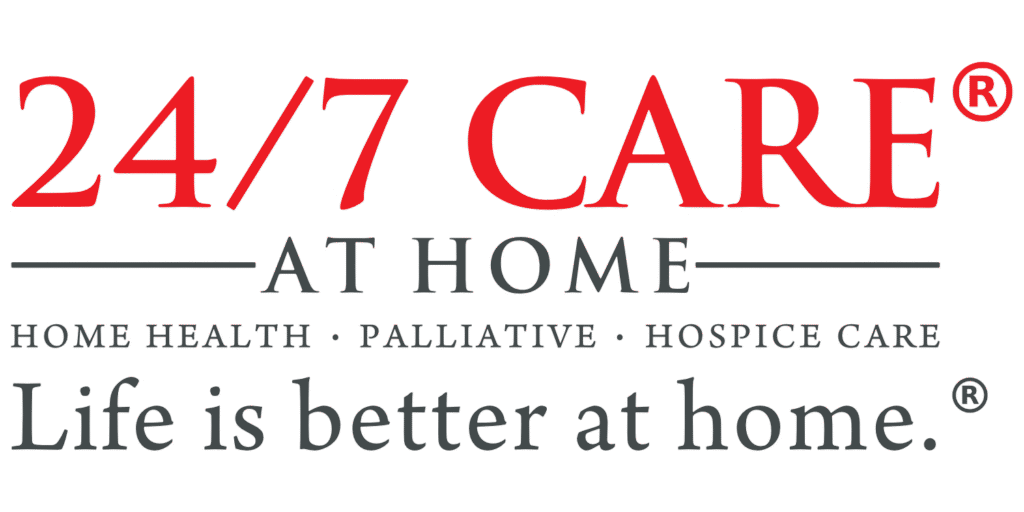Caregiver Support
Support, guidance, and resources for those caring for loved ones
Caregiver
Support
Diseases &
Conditions
Signs of
End of Life
Grief and Bereavement
Caregiving Essentials: A Beginner’s Guide
What should family members or loved ones know when beginning to care for someone at home?
- Create a simple daily routine for meals, medications, rest, and personal care
- Use a pill organizer and keep an up-to-date list of all medications
- Communicate regularly with doctors and nurses - write down questions and bring notes to appointments
- Learn about your loved one’s condition and the care plan
- Don’t wait to ask for help - family, friends, or professional services can support you
- Post emergency contacts and health info in a visible place at home
💡 Tip: You don’t have to do it alone. Community resources, home care providers, and support groups can help guide you.
Balancing Act: Managing Caregiving and Personal Well-being
How can family members care for someone without sacrificing their own health and energy?
- Set limits and prioritize what truly needs to be done
- Make time daily for small breaks - even a short walk or quiet moment helps
- Stay connected with friends or family to avoid isolation
- Get enough rest, eat well, and stay hydrated
- Schedule time for yourself - your needs matter too
- Don’t hesitate to accept help when it’s offered
💬 Remember: Taking care of yourself isn’t a luxury - it’s necessary for being there for your loved one.
Recognizing When It’s Time for Additional Support
How do families know when it’s time to bring in home health or hospice care?
Home Health May Help When:
- Your loved one has been discharged from the hospital, is recovering from illness or injury, or needs support with medications or therapy
- They’ve had recent falls, multiple ER visits, or are struggling with daily tasksHospice May Help When:
- A doctor has said they have a life-limiting illness and the focus is shifting toward comfort
- They have increasing pain, frequent hospital stays, or are rapidly declining
- You as a family are overwhelmed or unsure what to do next
📞 Tip: You can call a home health or hospice provider directly for a no-obligation consultation. You don’t need a referral to ask questions.
Preventing Falls at Home: Safety Tips for Families
What can family members do to help make the home safer and prevent falls?
- Remove clutter and tripping hazards like loose rugs and cords
- Install grab bars in bathrooms and secure railings on stairs
- Use nightlights and ensure good lighting throughout the home
- Provide non-slip socks or shoes with good grip
- Keep essentials like the phone or TV remote within easy reach
- Encourage regular movement or light exercise, and use walkers or canes as needed
✅ Tip: A home health agency can send a therapist to evaluate fall risks and offer personalized safety suggestions.
Self-Care Strategies for Family Caregivers
How can loved ones caring for someone at home protect their own health and well-being?
- Set boundaries - know your limits and speak up when you're stretched
- Take short, regular breaks and plan time off with help from others
- Practice small self-care habits - stretching, journaling, even a quiet cup of coffee
- Eat balanced meals, drink water, and prioritize sleep
- Connect with others - talking with people who understand helps more than you may think
- Watch for signs of burnout: exhaustion, irritability, or losing interest in your own life
🧡 Tip: You can’t pour from an empty cup. Recharging helps you show up fully for the one you care about.
Understanding the Hospice Journey: What to Expect as a Family
What happens when a loved one begins hospice care at home?
- A nurse visits to assess your loved one’s needs and help set up care
- A team is assembled: nurse, aide, social worker, chaplain, and more - focused on comfort
- Medications, medical supplies, and equipment (like a hospital bed) are delivered quickly
- Regular visits are scheduled, and nurses are on-call 24/7 if anything changes
- Emotional and spiritual support is available for the whole family
- Care is focused on dignity, peace, and honoring your loved one’s wishes
🕊️ Hospice is not about giving up - it’s about making each moment meaningful, together.
Nutrition and Hydration for Seniors Receiving Care at Home
How can families support their loved one’s nutrition and hydration during recovery or illness?
- Offer small, regular meals that are easy to chew and digest
- Keep water or favorite drinks within reach - hydration is as important as meals
- Watch for changes in appetite, weight loss, or signs of dehydration (dry mouth, fatigue)
- Use simple meal prep solutions like smoothies, meal delivery, or soft finger foods
- Ask a nurse or home health provider for advice on nutrition or swallowing issues
- Make mealtimes social - eating together can improve appetite and mood
🍽️ Tip: Even when they’re not hungry, a gentle reminder or small treat can help keep nutrition on track.

